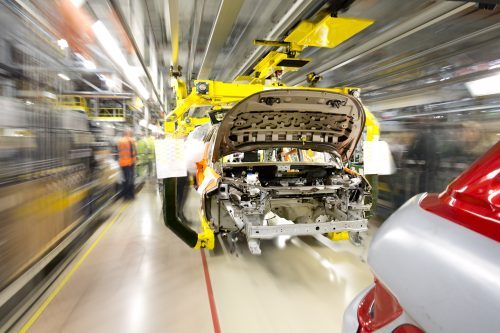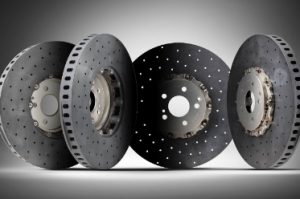UK car production hits eight-year low as consumer confidence dips

UK car production declined for the first time in eight years in 2017, according to latest figures.
In total, 1,671,166 vehicles rolled off production lines last year, a 3% decrease on 2016 and the first decline since the depths of the recession in 2009.
However, the Society of Motor Manufacturers and Traders (SMMT) – which published the figures – said overall output was the second highest in 17 years.
Nevertheless, there was a near 10% fall in output for the UK market with a large amount of blame for this laid at the feet of Brexit and the continuing uncertainty surrounding what will happen when we leave the EU next year.
A general lack of economic confidence and confusion over the government’s policy on diesel engines have also been cited by the SMMT as reasons for the fall.
Disappointingly for the industry, cars produced for export also fell, though at a much lower rate, by 1.1%.
Overseas demand continued to dominate production, accounting for 79.9% of all UK car output – the highest proportion for five years.
The EU remained the UK’s biggest trading partner, taking more than half (53.9%) of exports, while the appetite for British-built cars rose in several key markets, notably Japan (+25.4%), China (+19.7%), Canada (+19.5%) and the US, where demand increased 7%.
Nevertheless, the SMMT said the latest figure is approximately 130,000 units below the mid-year forecast, given lower than expected demand primarily in the domestic market.
“This significant decline in production underscores the importance of government and industry working together to ensure the right conditions for the sector,” it said.
“The Industrial Strategy and, in particular, a Sector Deal for automotive are important but must be supported across government ensuring all policies align to the goal of a vibrant and growing industry.”
On a brighter note, the SMMT said the UK’s growing reputation as a centre for excellence in powertrain design and manufacturing helped drive engine production to record levels.
Demand for UK-built engines grew at home and overseas, with overall output up 6.9% to more than 2.7 million – with 54.7% destined for car and van plants around the world, the majority in the EU.
The growth is the result of significant investment in plants such as Jaguar Land Rover’s £1bn factory near Wolverhampton and BMW’s Hams Hall plant. These facilities are now producing high tech, low emission, high demand petrol and diesel engines.
Last year, more than 1 million diesel and 1.7 million petrol units were built in Britain, delivering £8.5bn to the economy. These latest figures highlight the importance of diesel and petrol engine manufacturing in the UK – with around 8,000 people employed in engine production and 3,350 directly employed in diesel engine production.
The SMMT has also named Jaguar Land Rover as the largest automotive vehicle and engine manufacturer in the UK in 2017. The British company produced 532,107 vehicles, a 2.3% fall from a record high in 2016, at its plants in Birmingham, Solihull and Liverpool. It also produced 305,907 clean Ingenium engines in Wolverhampton.
Dr Ralf Speth, Jaguar Land Rover CEO, said: “We are proud to strengthen our position as Britain’s number one car manufacturer.
“However, the car industry is facing a number of challenges that are undoubtedly impacting consumer confidence, particularly in the UK. Jaguar Land Rover must become as lean and fit as possible so that we can continue to invest in our autonomous, connected and electrified future.”








